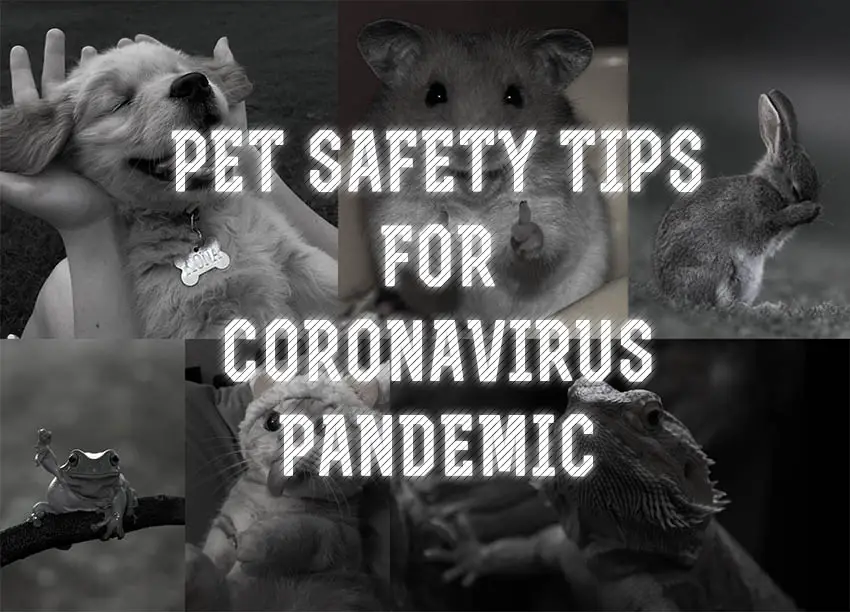At the moment, Coronavirus has been threatening both humans and animals. Sometimes, you will ask: Can Bearded Dragons Get Covid? This topic today gives you not only answers but also pet safety tips for coronavirus pandemic, which might help pet owners take care of their lovely animal properly including the bearded dragon.
Fortunately, there are only a few cases of pet affected virus.
Besides, there is no risk of pet spreading the virus to humans.
However, because of complicated situations, COVID 19 may change into a new form with more danger to both humans and animals in the future.
Thus, keeping your pets away from COVID 19 should be done carefully and quickly.
Pets are our family, we can not leave any of them behind.
Let keep reading below, surely you will find out some helpful information and experience.
Related:
- Can You Put Two Bearded Dragons in a Cage?
- Bearded Dragon Names For Both Genders
- How To Tell If Your Bearded Dragon Is Happy?
- How Long Can a Bearded Dragon Go Without Heat?
- Reasons Why Your Bearded Dragon Turned White And Died
- How Big Can a Bearded Dragon Get?
- How To Pick Up a Bearded Dragon?
- 30+ Beardie Body Language
- Best Tortoise Enclosure – Complete Guide
What To Do If Your Bearded Dragons Get Covid?
1. Safety Tips for Dogs & cats
Mostly COVID 19 spreads from humans to humans and pets, not from pets to humans.
Although it is rare to have infected corona pets, there is still one dog in Hong Kong was confirmed to infected Coronavirus. That’s mean the dogs and cats can be infected with coronavirus from humans.
Dogs and cats are considered to be easier to get corona compared to the other animals.
a. Carrying out social distancing with your pets
You should avoid going to some public areas, parks with many peoples and pets gather.
In case, you bring them outside, you should wear them a leash and always keep dogs 2m away from the other people.
b. In case the owner getting sick
In case the owner gets sick because of a virus, immediately isolate your self from others and pets. Let some others taking care of your pets.
If you still need to take care of them, don’t forget to wear a mask and gloves.
Before and after handling pets or their tools, you need to clean your hands well and sanitize properly. Remember wearing the mask.
Especially, you need to check up the pet’s health and status frequently.
Don’t bring them directly to the vet, just contact with them and they will make a virtual visit or design the treatment plan.
c. In case if your dogs or cats get COVID 19

Even with the low risk of getting coronavirus for dogs and cats, we still need to know how to keep them safe in this case.
Firstly, isolate your pets in a private room away from your family and other pets.
When you interact with them or other tools such as bad, bowl, or bed, you need to wash your hand. Don’t wipe your dogs or cats with the toxic disinfectants.
Call your vet, if your pets get worse.
d. Stock up
For both humans and pets, these safety tips are one of the must-do tasks.
When you store enough food for your pets, you can stay home keep social distancing without going out a lot of time.
Besides, let imagine if you are getting sick, how your pet can be feed if you don’t have enough food stored at home.
Read more:
e. Play with your pet in the quarantine time
Pets need to stay outdoor and doing activities together with their owners, but this time we should be calm down.
Instead of bringing the out, just stay at home with toys and other indoor activities.
It would be helpful to avoid anxiety for both pets and owners. Especially, dogs always need to be careful and joyful every moment.
Thus, spend time with them instead of keeping them silently in the house all day.
f. Walking them outside
To entertain them, you still can bring them outside, but please consider some faraway city places.
Don’t forget to keep a 2-meter distance between your dogs and other peoples.
Before bringing them out, let check out some pet travel safety tips in the pandemic.
2. Safety Tips for Reptiles/amphibians – What To Do If Your Bearded Dragons Get Covid?
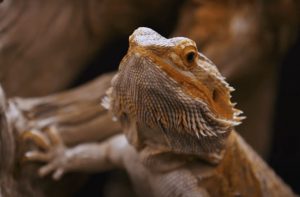
Before, there was information that the virus is from a snake or Chinese cobra, but it is not clear and full evidence. At the moment, there is no case of infected COVID 19 on reptiles, also this animal could not spread the virus to humans.
It does not mean that they will not have any risk of getting coronavirus in the future. Thus, some safety tips for taking care of them will not be missed.
a. Disinfection
I am sure that disinfection is needed for your pets at this time.
However, mostly the enclosures are limited in the ventilation system.
Thus, if you use bleach, alcohol, or other cleaning agents, you should take time to ventilate totally before return the pet into the case/ The smoke from disinfectants could cause some respiratory irritants.
Especially, for the amphibians, their skin is very sensitive and easy to get irritated from the toxicity.
Thus, make sure that you clean your hand well before toughing them. It is better to use the gloves for protecting their skin.
Don’t forget to clean and rinse off all the disinfectants in the cage before putting the pet inside and add more new water and substrate.

b. Food
Same as the case, tongs, bowls, and other surfaces should be disinfected and should be rinsed after disinfection.
Don’t share these tools between animals to minimize all risks of diseases.
Related:
- Can Bearded Dragons Eat Rosemary?
- Can Beardies Eat Brussel Sprouts?
- Do Beardies Eat Peas?
- Can Beardies Eat Squash?
c. Introducing new pets
If you are intending to add new animals to your collection, you should keep them in quarantine for a minimum of 60 days in a separate room.
Besides, checking up on health should be carried out carefully all the time, not only in the pandemic. The proper quarantine can support to prevent serious disease from the new animal introduced.
d. Supplies
Last but not least, a stock of 2 week supply of foods and medication for your pets should be prepared perfectly.
In the pandemic, there is nothing certain, some stores and clinics can be overload, or shut down at some points.
Thus, it is best to prepare for a short period of hard access to foods, vegetables, and other items.
If your pets need treatment, you can find a vet around your area through the Association of reptile & Amphibian vet.
That is a checklist for you to do if bearded dragons getting covid.
Related:
- Best Calcium Powder For Bearded Dragons
- Why Is My Bearded Dragon’s Beard Black?
- Why Is My Bearded Dragon Closing Eyes When Stroked?
- Bearded Dragon Brumation Or Dead – How To Differentiate?
- Why is My Bearded Dragon Hissing at Me?
- How Long Can A Bearded Dragon Go Without Water?
3. Pet safety tips for coronavirus pandemic: Small pets ( rodents, rabbit, etc)

Although like most other animals, small pets are not recorded to be infected or spread to humans, preparing for a bad situation is not a bad idea at this moment.
As some research, small animals can get viruses easier than dogs and other bigger animals.
There are several steps to keep your small pets safe during this COVID hard time.
a. Wash your hand frequently
I am sure, small cute pets will make you touch them frequently.
Thus, keeping your hand clean before contact with your pet should be a must thing to do. This time, avoid touching their mouse, eyes, and nose.
b. Clean & sanitize your pet’s habitat
The surface is the way to transmit viruses COVID 19 effectively, hence, it is crucial to clean and sanitize all surfaces include the pet’s habitat and where you touch or handle on an everyday basis (bowl, water bottles, or toys).
c. Limit travel and outdoor activities
Taking our pets to stores, joining events, enjoy activities might become our habit for a long time already. It is not easy to stop even temperately.
Also, our mice and rabbits might feel anxious if they can not go out. However, following social distancing is very important now.
Thus, you can find joy in other activities such as sharing photos and videos at home, spending time playing with them.
d. Stock the supplies and foods
In a pandemic, it is important to keep stocked up the supplies including food and medications. Two weeks to a month is our suggestion.
The Winter season is coming together with Halloween and Christmas events, unfortunately, it might be not as normal as the last time.
You might need to prepare some safety tips for Halloween and Christmas also.
Commonly Asked Question About Bearded Dragons Getting Covid
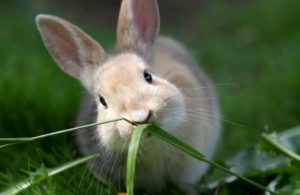
1. Covid-19 spread from humans to animals or the opposite?
Based on the up-to-date information, the risk of causing the virus to spread from human to pet is low.
In over the world, there is only a small number of animals infected with COVID 19 and most of them have very close contact with the COVID 19 patient. There is no evidence that animals can spread COVID 19 to humans.
2. Should I test coronavirus for my pets?
No, it is not necessary to do that because as above the pet has a low risk of getting coronavirus. If your pet has some sick, just contact the vet, they will help you out to sell the problem.
3. Is it possible for me to take my pet to the groomers?
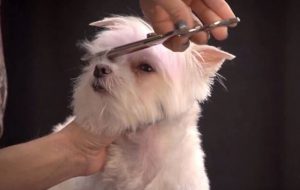
Yes, you can do that, but you need to call your groomers before you decide to bring them to “corona pet grooming”. Don’t leave your house if you are in the self-isolating or you have the symptoms of COVID 19.
4. What can I make my dog active?
Some indoor and outdoor activities below will solve your pet’s problems.
You can play with them to entertain them, for example, play hide and seek with your dogs.
If you have a garden, you can bring them out to run around and explore things around. Especially, you can teach them a new trick or train them some more new skills.
Or you can check out again the information on the pet safety tips for coronavirus pandemic above for dogs and cats.
5. What kind of disinfectants should I use for my pet habitat?
CDC already informed the public about disinfecting the surface, there is a group of disinfectants that can inactive the covid19.
– Rubbing alcohol (70%)
– Bleach can be diluted by putting 4 teaspoons of bleach per 1 quart of water or 20 milliliters of bleach into 1 liter of water
– 0.5% hydrogen peroxide
– 0.1% sodium hypochlorite
6. Should my pets wear the mask?
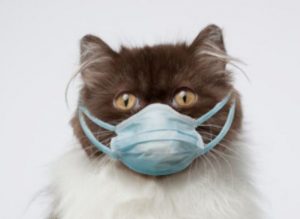
No, this situation is different from humans. Mask might not protect your pet from the virus while making some other breathing difficulties.
Besides, your pet will never keep the mask on their mouth and nose all the time. Thus, it is useless
7. Can the infected COVID 19 animal carrying the virus on their skin or fur?
No, there is no evidence to prove that viruses hide on the fur or skin of the animal.
We know that sometimes, the fur and hair can carry some bacteria and fungi.
8. What animals can get COVID 19? Can Bearded Dragons Get Covid?
In the available researches, the hamsters, cats, ferrets, and dogs could be infected with the corona and can spread it to other animals in similar species in laboratory conditions.
While the poultry such as chickens and horses might not get the virus or spread it out.
9. Is there any corona animal hospital?
Yes, there is. In California, there is one hospital for pets named South corona, you can check the South corona pet hospital reviews for having more information about the treatment there.
Conclusion
Coronavirus is a real nightmare to all over the world. To overcome this hard time with your pet safely, you should take time to find out all information and experience.
We hope our page of “Can Bearded Dragons Get Covid?” would be one of the most useful and trustable pieces to help pet lovers in the earth win in the battle of COVID 19. Good luck and keep calm!
Key take away points for can bearded dragons get covid:
Amid the COVID-19 pandemic, there has been concern about the potential transmission of the virus to pets, including reptiles like bearded dragons. Here’s what you need to know:
Can Bearded Dragons Get COVID-19?
As of the available information up to my knowledge cutoff in January 2022:
- There is no documented evidence of bearded dragons contracting or transmitting COVID-19 to humans or other animals.
Key Points to Consider:
- Low Risk to Reptiles: Reptiles, including bearded dragons, are generally considered to be at low risk for COVID-19 infection. They are not a known reservoir for the virus.
- Human-to-Human Transmission: COVID-19 primarily spreads through respiratory droplets between humans. While there have been cases of the virus infecting certain mammals, reptiles have not been a primary concern for transmission.
- Basic Hygiene Practices: Despite the low risk, it’s important to practice good hygiene when handling your bearded dragon, which includes thorough handwashing before and after interaction. This is a good practice for general health and safety.
- Monitoring for Updates: Stay informed about any new research or findings related to COVID-19 and animals, as our understanding of the virus is continually evolving.
- Pandemic Precautions: During the pandemic, if you are COVID-19 positive or have been in close contact with someone who is, it’s advisable to limit close contact with your pets, including bearded dragons, to reduce the risk of any potential transmission.
Precautions for Bearded Dragon Owners:
- Practice proper hand hygiene and cleanliness when handling your bearded dragon.
- If you are ill or have tested positive for COVID-19, consider limiting close contact with your pet until you are no longer contagious.
- Maintain a clean and hygienic living environment for your bearded dragon to ensure their well-being.
Note: Always consult with your veterinarian or check for updated information from health authorities like the CDC and WHO for the latest guidance regarding COVID-19 and pets.
As of the available information, bearded dragons and other reptiles are considered to be at low risk for contracting or transmitting COVID-19. While there is no documented evidence of COVID-19 transmission to or from these pets, it’s essential to continue practicing proper hygiene and cleanliness when caring for your bearded dragon, as well as staying informed about any updates or developments related to COVID-19 and animals.
Further Reading:

